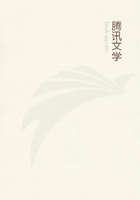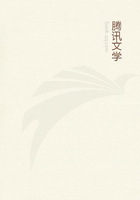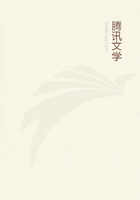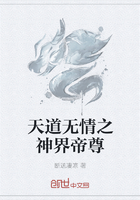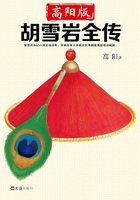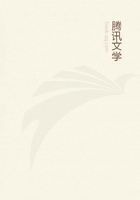Marie Antoinette thought of those pleasant days of the past, as she sat in the still, deserted music-room, where the instruments stood silent by the wall--where there were no hands to entice the cheerful melodies from the strings, as there had once been.
"I wish that I had never sung duets with Garat," whispered the queen to herself. "The king allowed me, but yet I ought not to have done it. A queen has no right to be free, merry, and happy. A queen can practise the fine arts only alone, and in the silence of her own apartments. I would I had never sung with Garat." [Footnote: The queen's own words.--See "Memoires de Madame de Campan," vol. ii.]
She sat down before the spinet and opened it. Her fingers glided softly over the keys, and for the first time, in long months of silence, the room resounded with the tones of music.
But, alas! it was no cheerful music which the fingers of the queen drew from the keys; it was only the notes of pain, only cries of grief; and yet they recalled the happy by-gone times--those golden, blessed days, when the Queen of France was the friend of the arts, and when she received her early teacher, the great maestro and chevalier, Gluck, in Versailles; when she took sides for him against the Italian maestro Lully, and when all Paris divided into two parties, the Gluckists and Lullyists, waging a bloodless war against each other. Happy Paris! At that time the interests of art alone busied all spirits, and the battle of opinions was conducted only with the pen. Gluck owed it to the mighty influence of the queen that his opera "Alcestes" was brought upon the stage; but at its first representation the Lullyists gained the victory, and condemned it. In despair, Gluck left the opera-house, driven by hisses into the dark street. A friend followed him and detained him, as he was hurrying away, and spoke in the gentlest tones. But Gluck interrupted him with wild violence: "Oh, my friend!" cried he, falling on the neck of him who was expressing his kindly sympathy, "'Alcestes' has fallen!" But his friend pressed his hand, and said, "Fallen? Yes, 'Alcestes' has fallen! It has fallen from heaven!"
The queen thought of this as she sat before the spinet--thought how moved Gluck was when he related this answer of his friend, and that he, who had been so kind, was the Duke d'Adhemar.
She had thanked him for this gracious word by giving him her hand to kiss, and Adhemar, kneeling, had pressed his lips to her hand. And that was the same Baron Adhemar who was now at Coblentz assisting the prince to forge libels against herself, and who was himself the author of that shameless lampoon which ridiculed the musical studies of the queen, and even the duet which she had sung with Garat!
Softly glided her fingers over the keys, softly flowed over her pale, sunken cheeks two great tears--tears which she shed as she thought of the past--tears full of bitterness and pain! But no, no, she would not weep; she shook the tears from her eyes, and struck the keys with a more vigorous touch. Away, away, those recollections of ingratitude and faithlessness! Art shall engage her thoughts in the music-room, and to Gluck and "Alcestes" the hour belongs!
The queen struck the keys more firmly, and began to play the noble "Love's Complaint," of Gluck's opera. Unconsciously her lips opened, and with loud voice and intense passionate expression, she sang the words, "Oh, crudel, non posso in vere, tu lo sui, senza dite!"
At the first notes of this fine voice the door in the rear of the room had lightly opened--the one leading to the garden--and the curly head of the dauphin was thrust in. Behind him were Madame de Tourzel and Madame Elizabeth, who, like the prince, were listening in breathless silence to the singing of the queen.
As she ended, and when the voice of Marie Antoinette was choked in a sigh, the dauphin flew with, extended arms across the hall to his mother, "Mamma queen," cried he, beaming with joy, "are you singing again? I thought my dear mamma had forgotten how to sing. But she has begun to sing again, and we are all happy once more."
Marie Antoinette folded the little fellow in her arms, and did not contradict him, and nodded smilingly to the two ladies, who now approached and begged the queen's pardon for yielding to the pressing desires of the dauphin, and entering without permission.
"Oh, mamma, my dear mamma queen," said the prince, in the most caressing way, "I have been very industrious to-day; the abbe was satisfied with me, and praised me, because I wrote well and learned my arithmetic well. Won't you give me a reward for that, mamma queen?"
"What sort of a reward do you want, my child?" asked the queen, smiling.
"Say, first, that you will give it."
"Well, yes, I will give it, my little Louis; now tell me what it is."
"Mamma queen, I want you to sing your little Louis a song; and," he added, nodding at the two ladies, "that you allow these friends of mine to hear it."
"Well, my child, I will sing for you," answered Marie Antoinette, "and our good friends shall hear it."
The countenance of the boy beamed with pleasure; with alacrity he rolled an easy-chair up to the piano, and took his seat in it in the most dignified manner.
Madame Elizabeth seated herself near him on a tabouret, and Madame de Tourzel leaned on the back of the dauphin's chair.
"Now sing, mamma, now sing," asked the dauphin.
Marie Antoinette played a prelude, and as her eyes fell upon the group they lighted up with joy, and then turned upward to God with a look of thankfulness.
A few minutes before she had felt alone and sad: she had thought of absent friends in bitter pain, and now, as if fate would remind her of the happiness which still remained to her, it sent her the son and the sister-in-law, both of whom loved her so tenderly, and the gentle and affectionate Madame de Tourzel, whom Marie Antoinette knew to be faithful and constant unto death.

